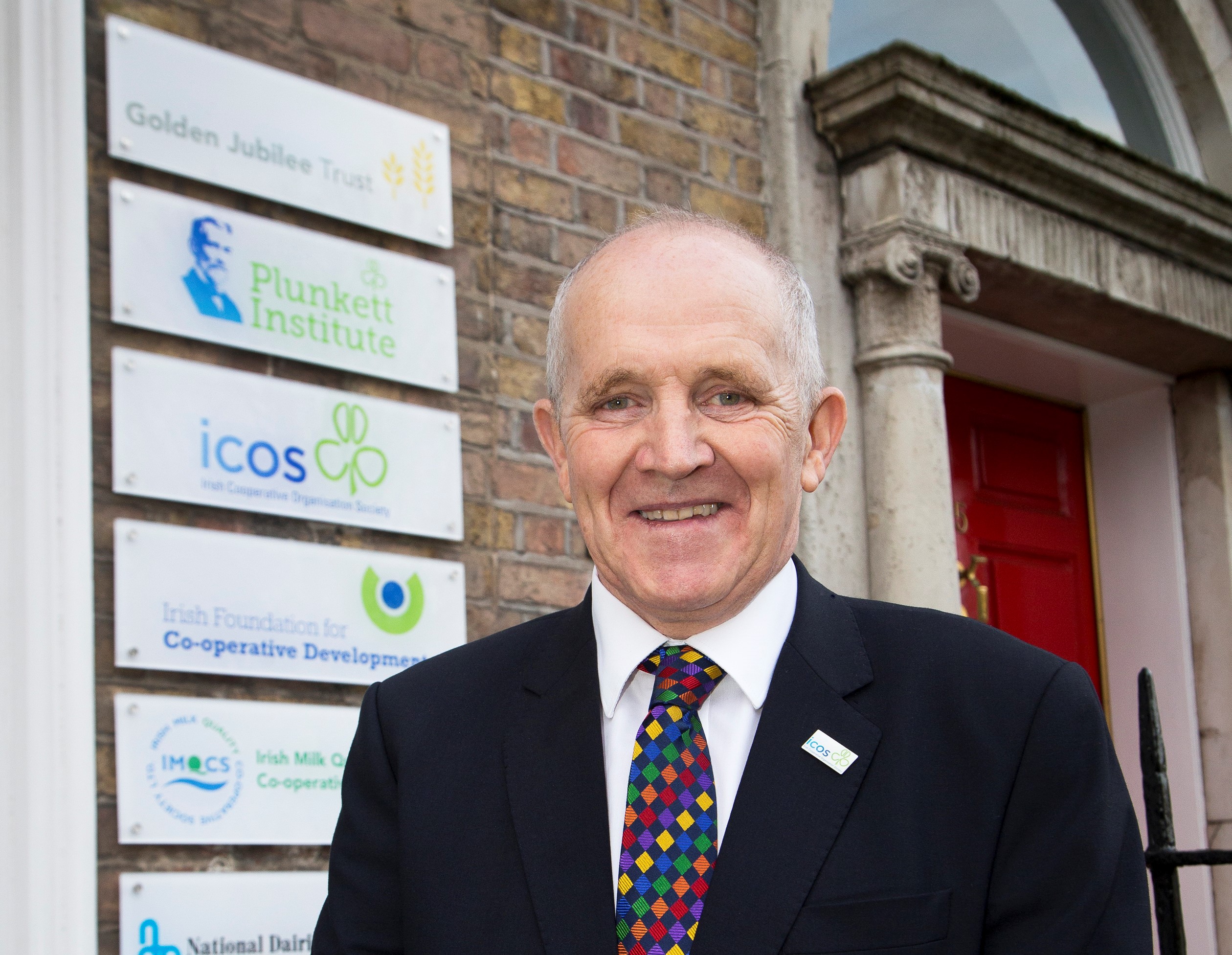ICOS welcomes Cross-Party Report on Climate Action
 Michael Spellman, President, ICOS
Michael Spellman, President, ICOS
The Irish Co-operative Organisation Society (ICOS), the umbrella body for the co-operative movement in Ireland has commented on the Joint Oireachtas Committee on Climate Action Report.
ICOS President, Michael Spellman stated in relation to its recommendations on agriculture, “I am particularly pleased to see the Report’s strong emphasis on knowledge sharing and the roll out of the 25 climate mitigation measures contained in the Teagasc Marginal Abatement Cost Curve.
“In 2018, ICOS published a report on climate change and our key recommendation focused on knowledge sharing. This is a recognition that there are no quick fixes when it comes to mitigation from agriculture as methane and nitrous oxide are biological emissions. The adoption of EBI, improved nitrogen use efficiency, uptake of protected urea, use of low emission spreading equipment, greater use of milk recording, extending the grazing season are all examples of practical measures that will reduce greenhouse gas emissions from agriculture.
“The critical message to farmers is that there is a strong correlation between the uptake of these carbon efficiency measures and farm level profitability. The co-op sector will continue to play an important role in fostering knowledge sharing through joint programmes between the dairy sector and Teagasc and new collaborative initiatives like the Agricultural Sustainability Support Programme through Dairy Sustainability Ireland.”
Mr. Spellman welcomed the Report’s recommendation to develop a network of AD or biogas co-ops:
“Anaerobic digestion is a proven technology with significant potential to reduce emissions from stored slurry and manure, will reduce nitrous oxide emissions and also offset fossil fuel as an energy source. However, there is a clear need for meaningful support from the Government to maximise the potential of AD biogas in Ireland, recognising the high investment costs involved. ICOS is willing to work with farmer and industry stakeholders to help develop the AD sector in Ireland on a co-operative basis by providing legal and governance advice and support to communities and groups of farmers willing to invest in the AD sector. ICOS also urges the Government to initiate a grant aided solar micro generation scheme using farm buildings in partnership with agricultural co-operatives.”
Mr. Spellman added that “Ireland’s low cost, grass-based system with cows at grass for up to 300 days a year underpins the Irish agri-food sector and delivers the highest animal welfare, environmental and biodiversity standards. We are happy to engage in a discussion on diversification and possible opportunities for the co-operative sector but grass based dairy and beef production will remain the backbone of Irish farming as it underpins the cost competitiveness and sustainable credentials of Irish agriculture, as leafy grass is a good carbon sink, which must be measured and accounted in greenhouse gas emissions inventories.”
In conclusion, ICOS President Michael Spellman stated “I would like to thank the Joint Committee for the opportunity afforded to ICOS to address the committee during their public deliberations on 12th December and I would like to pay tribute to the Committee and especially its Chairperson, Hildegarde Naughton TD for compiling this report, which is of immense importance to the future of our country, rural Ireland and the agri-food sector. ICOS is committed to working in partnership with all stakeholders to ensure the implementation of the report’s recommendations, where practical related to the agri-food sector and co-operative development.”